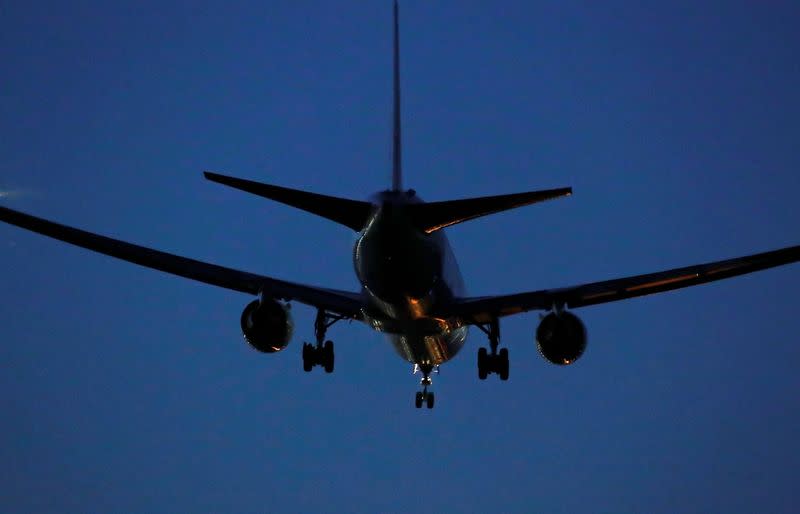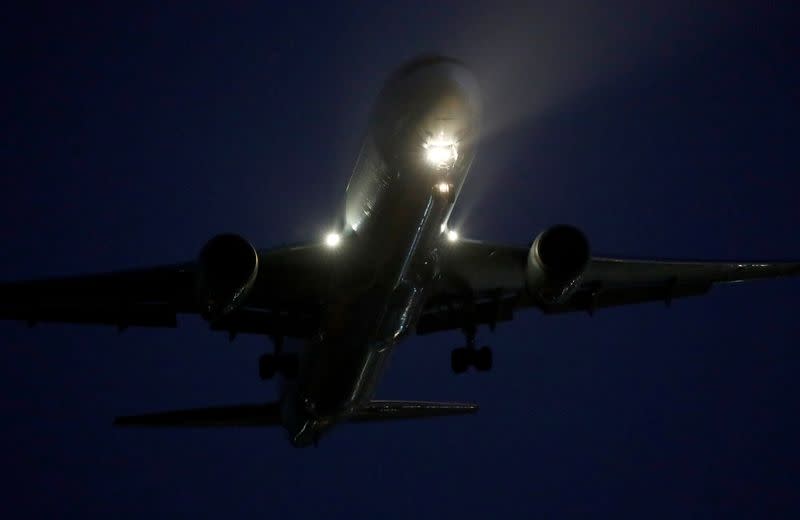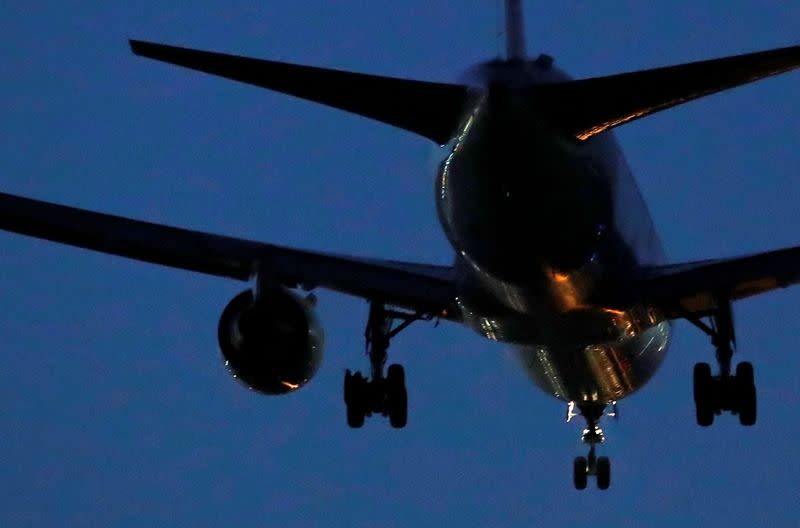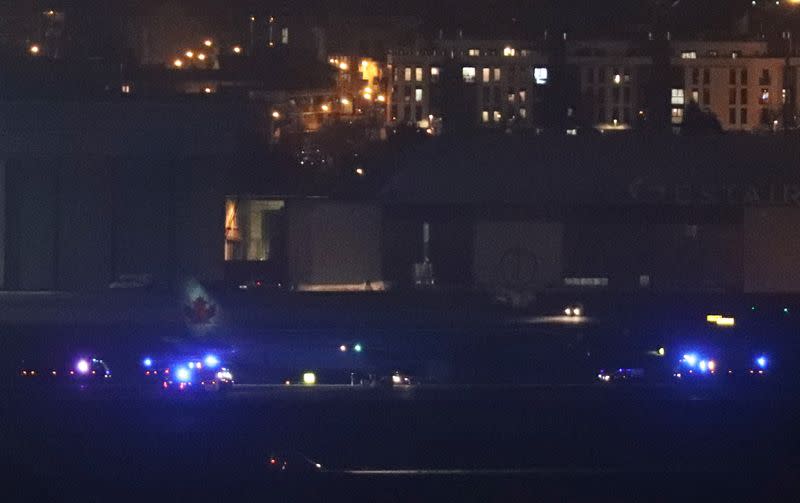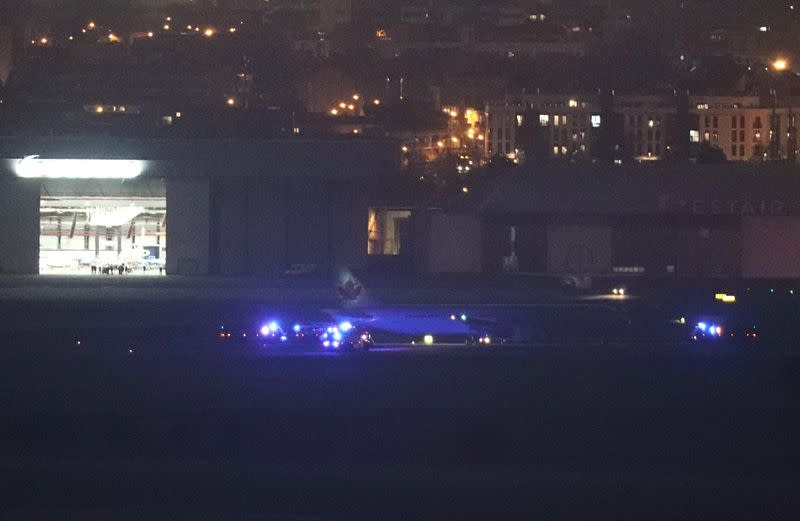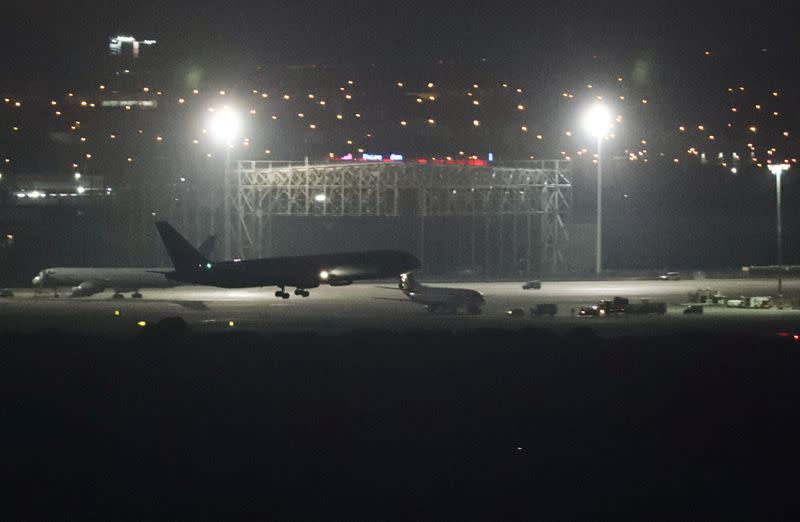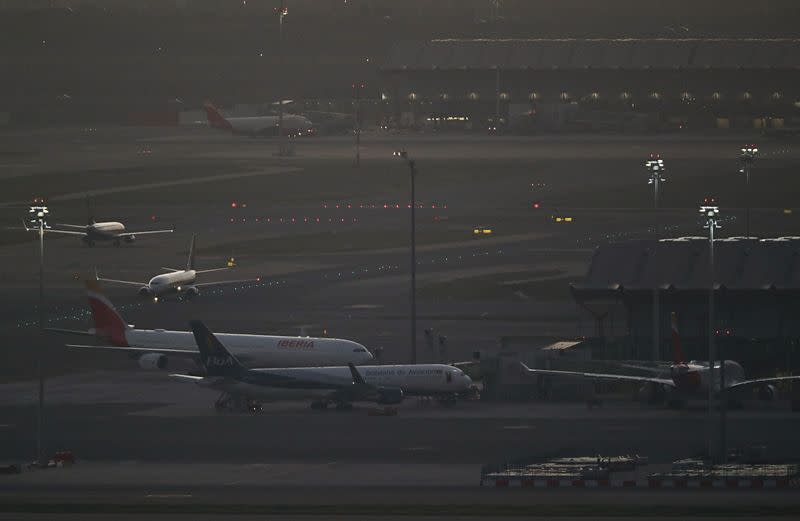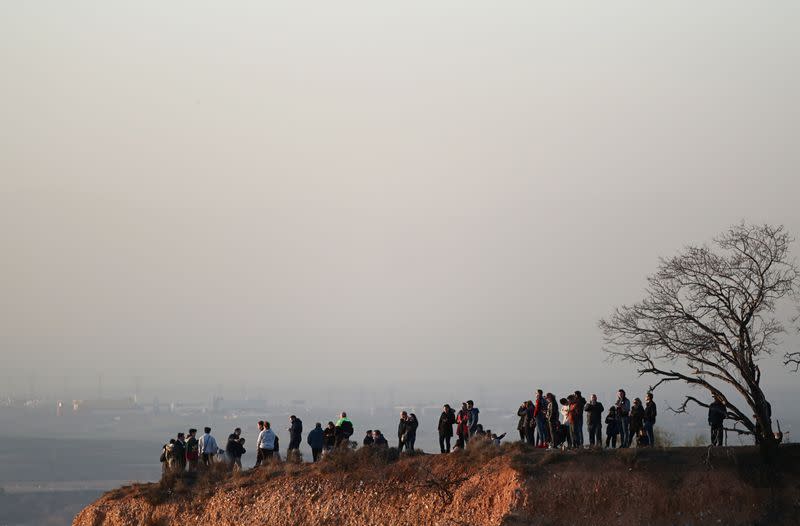Air Canada Boeing 767 returns safely to Madrid after engine issue
MADRID (Reuters) - An Air Canada Boeing 767 with 128 passengers and eight crew returned safely to Madrid's Barajas airport on Monday after reporting an engine issue and a burst tyre on take-off that forced it to circle for hours to burn fuel before landing.
Reuters television footage showed the Boeing Co <BA.N> 767-300ER, which had left Adolfo Suarez Madrid-Barajas Airport bound for Toronto about four hours earlier, landing safely and fire engines rushing onto the runway.
"The aircraft has landed without incidents and the mechanics are evaluating its condition to determine the best way to disembark the passengers," airport operator AENA said.
"Pretty scary rough landing, but we made it. Thanks for all the messages and wishes," tweeted one passenger identified as Aaron C.@thelastfedor, who had posted images from inside the plane while it was in the air.
Reuters was unable to immediately independently verify the authenticity of the images or the identity of the passenger.
Spain's Transport Minister Jose Luis Abalos, who had made his way to the airport in the capital, took to Twitter to congratulate the pilot and crew for their expertise.
Air Canada <AC.TO> said in a statement that the plane circled for four hours "to use up fuel and lighten the aircraft for a safe landing" in Madrid after an engine issue and reported rupture of one of its 10 tyres.
"The aircraft, a Boeing 767-300, is designed to operate safely on one engine and our pilots are professionally and fully trained for this event," Air Canada said in a statement.
Canada's largest carrier said there were no reported injuries and customers will be provided hotels and rebooked on other flights.
Earlier on Monday, social media lit up with videos of a plane flying less than a kilometre over Madrid.
The incident occurred just hours after a drone sighting near the takeoff area at the airport caused a brief disruption, with 26 flights diverted away from Barajas.
The Canadian airliner called air traffic control 30 minutes after takeoff and requested a slot for an emergency landing, an AENA spokeswoman said. She could not say whether the incident was in any way related to the previous shutdown.
According to Flightradar24, a tracking website, the Air Canada Boeing 767-300ER, is about 30 years old.
(Reporting by Silvio Castellanos, Belen Carreno, Emma Pinedo and Guillermo Martinez in Madrid, Tim Hepher in Paris and Allison Lampert in Montreal; Writing by Andrei Khalip and Jessica Jones; Editing by David Clarke and Lisa Shumaker)

